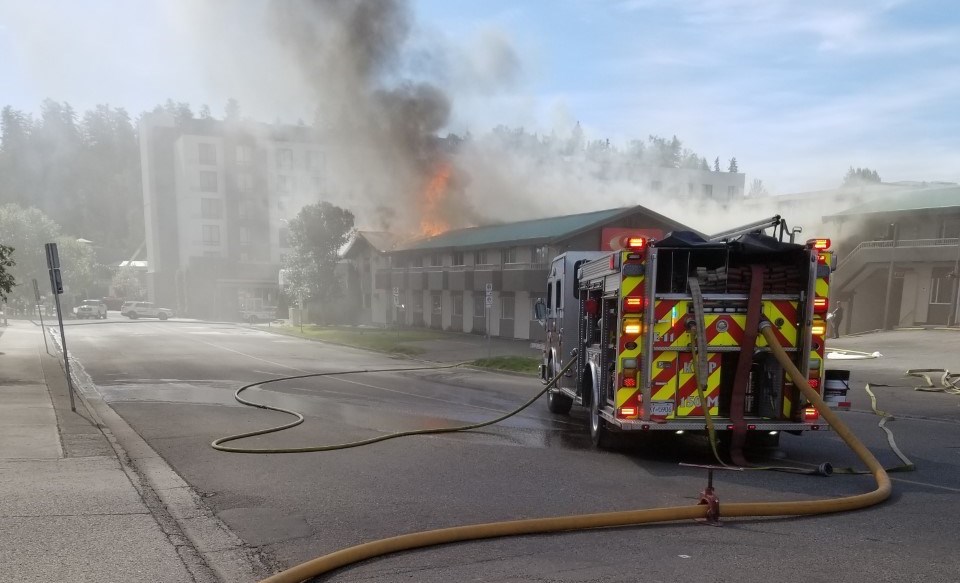A potentially key piece of evidence will remain before the court after a B.C. Supreme Court Justice found the RCMP's failure to provide timely access to counsel fell short of the threshold needed to have it excluded from a trial for a man accused of a deadly fire.
Justin Kyle Aster faces three counts of criminal negligence causing death and one count each of arson in relation to an inhabited property and arson damaging property from the July 8, 2020 fire that killed three people staying at the Econo Lodge Motel at the corner of Victoria Street and Ninth Avenue.
Three days after the fire, RCMP took Aster in for questioning but he was not charged. However, he remained a suspect and, on September 16, 2021, he was picked up once again and this time arrested and charged.
Aster did not provide anything of value during the two hours of questioning that followed but during a smoke break the next day, he admitted to being the seen on a security camera passing through a section of the motel at about the same time the fire broke out, although he still denied setting the fire and maintained he was only looking for cigarette butts.
At issue was whether the statement should be admitted as evidence in the trial proper. In a decision issued Friday, Justice Margot Fleming found that although the RCMP failed to provide him timely access to counsel, it was not enough to bring the administration of justice into disrepute.
Fleming did take RCMP to task over the failure.
Despite starting to plan the arrest some three days before the apprehension, RCMP never discussed how to afford him the first reasonable opportunity to contact a lawyer, the judge noted, and found that when Aster was picked up, RCMP could have provided him with a cellphone to contact a lawyer.
Instead, they took him to the detachment and put him through the booking process - complete with a pat down despite Aster wearing only a T-shirt, shorts and flip-flops and so not presenting a serious security concern - before giving him a chance to use the detachment's sole phone room.
Even then, Aster had to wait because it was being used by another detainee and an offer by that person's arresting officer to let Aster jump the queue was turned down by his arresting officers.
In all, the delays added up to a bit more than 20 minutes, by the judge's calculation. Fleming found the delay weighed "in favour of exclusion but only moderately so" and that the seriousness of the offence and the significance of the evidence tipped the balance back in favour of turning down defence counsel's application to dismiss the statement.
Fleming issued a similar decision regarding concern about a failure to provide timely access to counsel during the July 2020 apprehension.
The trial proper resumes today at the Prince George courthouse.



